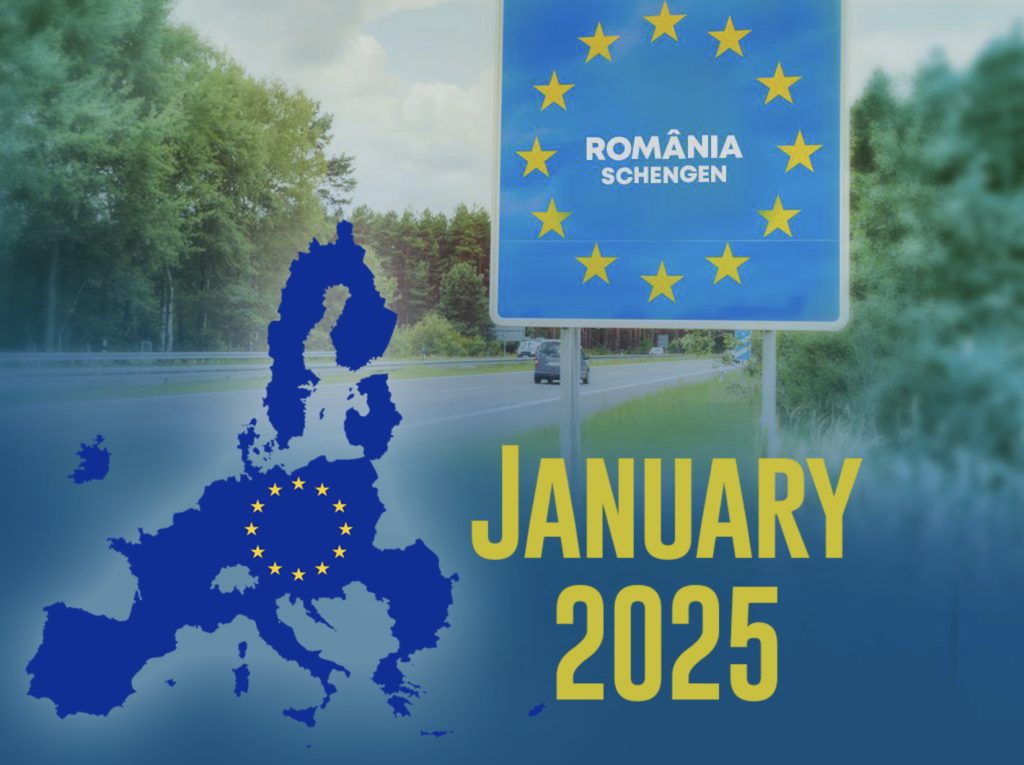
Please Follow us on Gab, Minds, Telegram, Rumble, GETTR, Truth Social, Twitter, and Facebook
The European Union's interior ministers voted on Thursday, December 12, to fully admit Romania and Bulgaria into the Schengen Area starting January 1, 2025, after Austria and the Netherlands lifted their vetoes that had been in place for the past two years.
“Interior ministers have just adopted a decision to lift internal land border controls with and between Bulgaria and Romania from 1 January 2025. A great victory for Bulgaria, Romania, and all of Europe!” the Hungarian Presidency of the EU Council announced on Twitter right after the deal was passed.
President Klaus Iohannis stated in a televised address that this is "a decision we have all waited far too long for." He added, "Thanks to the coordinated efforts of Romanian authorities and the intensive political and diplomatic steps taken—particularly by the Ministry of Internal Affairs and the Ministry of Foreign Affairs—we can finally enjoy a well-deserved and legitimately earned right for Romania."
Prime Minister Marcel Ciolacu also delivered a televised message, stating that "this is a victory for justice and national dignity, and a clear signal that we will never accept being treated as second-class citizens in Europe."
What This Means for Romania
Romania's accession to the Schengen land area starting January 1, 2025, will bring numerous benefits, particularly economic ones. Additionally, long queues at the borders will become a thing of the past. The most significant advantage lies in the freedom of movement for citizens of Schengen member states.
This means that Romanians will no longer be subject to border checks when entering Schengen states. The greatest benefits will be felt by trade companies and transport firms, which will save countless hours previously lost at border queues. According to various statistics, Romania has been losing several billion euros annually due to border controls and extensive wait times. In many cases, freight trucks would spend entire days stuck at customs.
Romania's full integration into the Schengen Area also sends a crucial signal to foreign investors. Many companies have hesitated to invest in the country, citing not only inadequate infrastructure but also the time-consuming border checks as significant barriers.
"Joining the Schengen Area leads to the elimination of internal border checks between member states that fully apply the Schengen acquis, creating a single external border where controls are conducted according to clear rules regarding visas, migration, asylum, and measures related to police, judicial, or customs cooperation," explain representatives of the Romanian Border Police. "After this decision, crossing internal Schengen borders can be done without restrictions, akin to traveling within a single country. However, the right of member states to require a valid identity document is not affected."
According to European Commission officials, "The Schengen Area allows over 400 million people to travel freely between member countries without undergoing border checks. Every day, approximately 3.5 million people cross internal borders to work, study, or visit family and friends, while nearly 1.7 million individuals live in one Schengen country and work in another. It is estimated that Europeans make 1.25 billion trips annually within the Schengen Area, which also brings significant benefits to tourism and the cultural sector."